Amadeus
It was 1786, when history records that Emperor Joseph II commissioned two composers, an Italian named Antonio Salieri and a German, named Wolfgang Amadeus Mozart, to write a one-act opera competition to showcase their different operatic styles. Salieri was a successful man, devoutly religious, and officially recognized Court Composer, while Mozart, considered a supremely gifted musical genius, was viewed as childish, vulgar, and belligerent to social etiquette. In 1830, Alexander Pushkin's dramatic play Mozart and Salieri, part of his Little Tragedies collection, which focuses on the fictional rivalry between the composers, is based on a rumor about Mozart's death and probes Salieri's envy of Mozart's genius and creativity. Steppenwolf Theatre explores the dynamics of this Drama/Tragedy through the creative eyes of author Peter Shaffer. Inspired by these stories and obsessed with Mozart's music, Shaffer wrote this dramatic, ambiguous fictional masterpiece, Amadeus. Since its London premiere on November 2, 1979, at the Royal National Theatre, Peter Shaffer has continuously tinkered with the play, wanting to explore different ideas or expand certain scenes. Shaffer stated that he was never satisfied with the ending of Amadeus, which features Mozart's quest to complete a Requiem, a Mass for the dead in the Catholic Church, or the lack of a confrontational scene between Salieri and Mozart, even though most consider it a masterpiece. As a classical music and opera lover, one aspect I would have appreciated seeing Shaffer tinker with in this play is adding more of Mozart's music. The play does provide samples of his music. Still, his compositions were truly God's art, and a few more of his pieces could enhance the audience's overall experience.



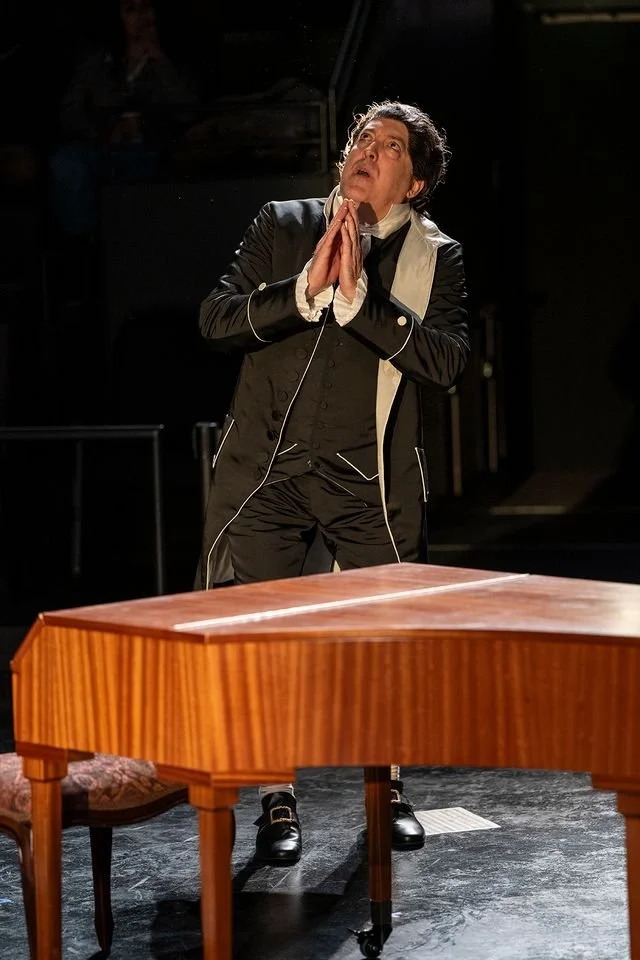
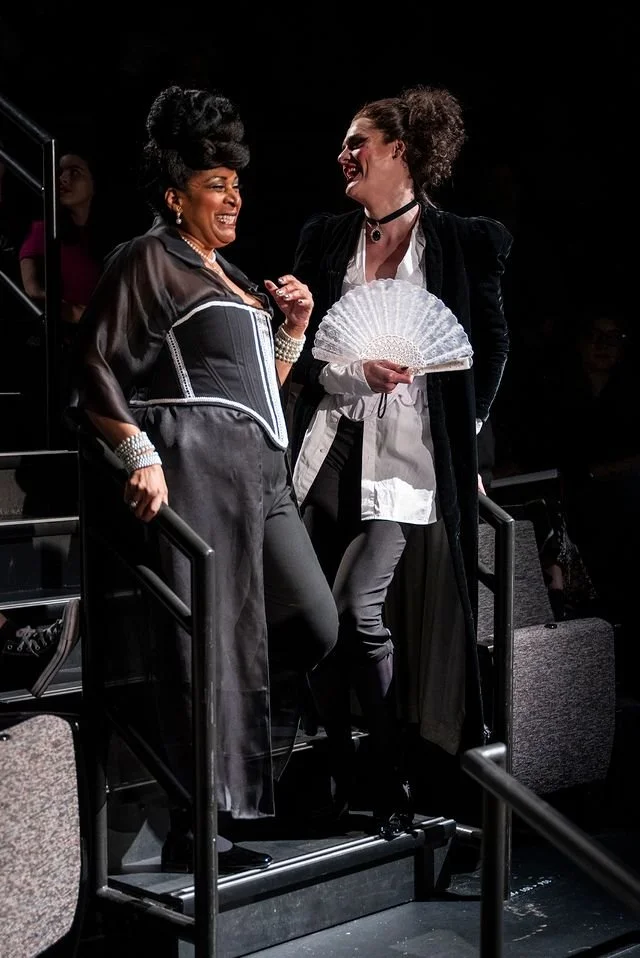



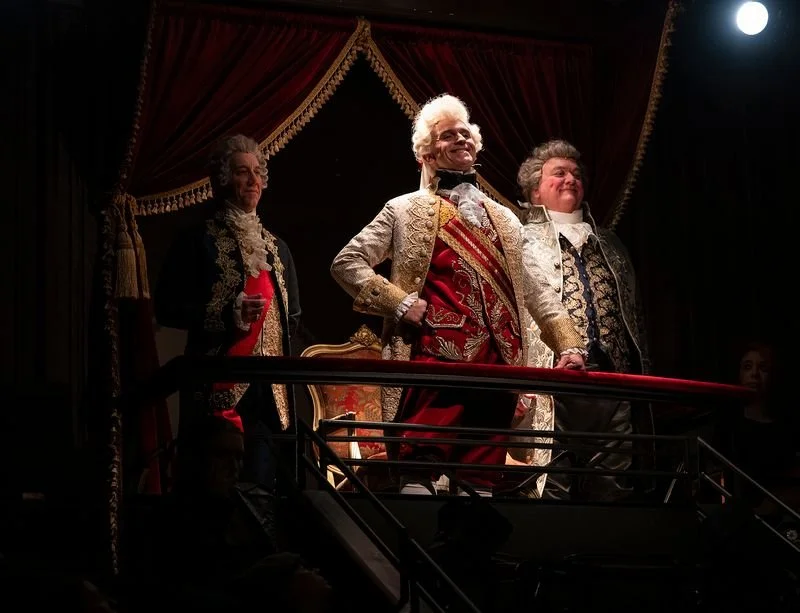

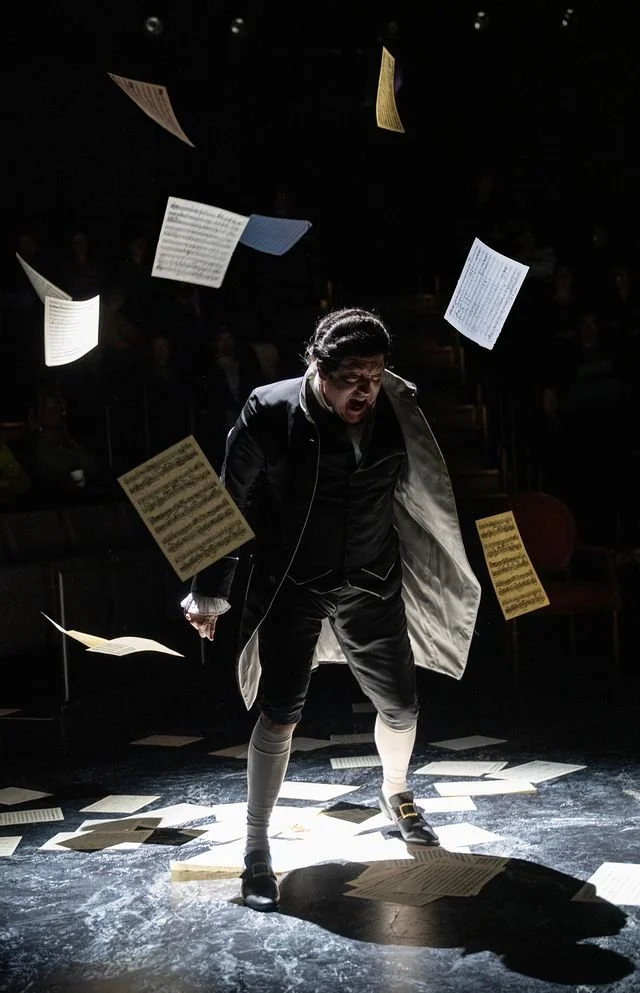



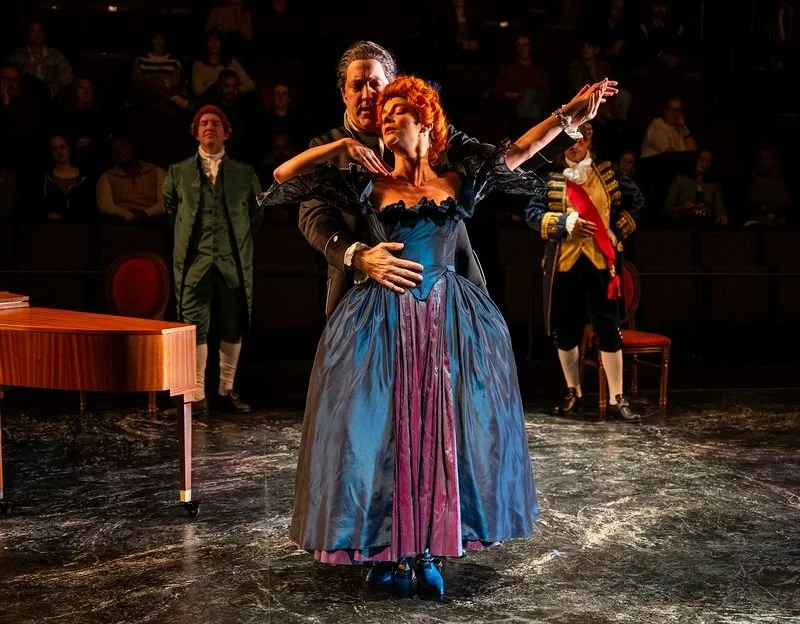

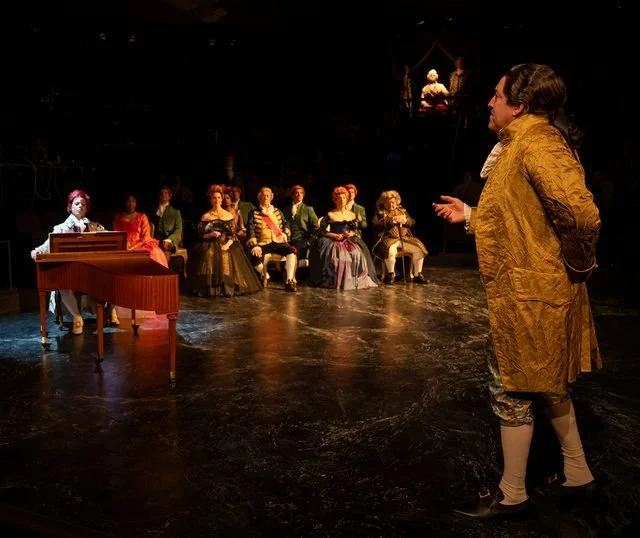

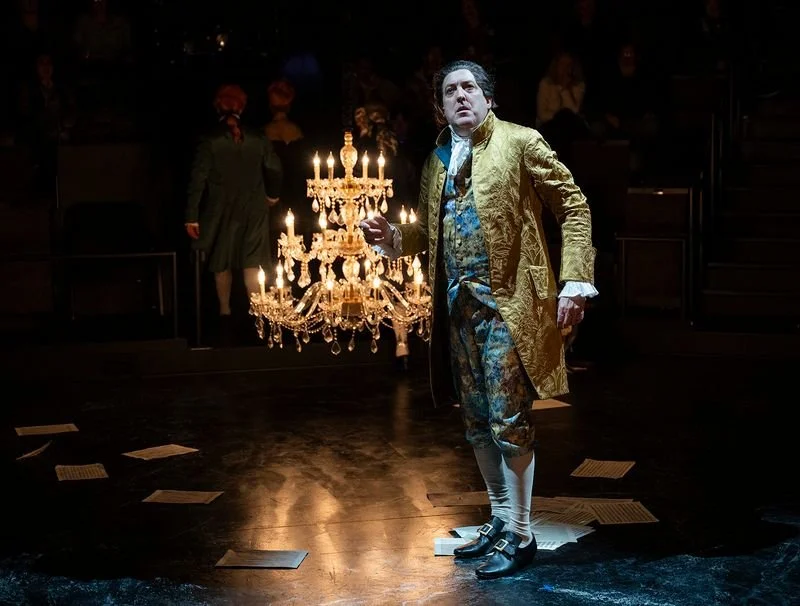
In Robert Falls' portrayal of the requiem, Mozart wrote it after seeing a gray messenger who haunted him during his illness and commissioned him to write it, which was the original Paul Scofield version. Other versions depict Salieri as the messenger in disguise. Falls' exceptional direction of the play was truly captivating, masterfully weaving Shaffer's enviously bewitching play, leaving you mesmerized. The cast, led by Ian Barford (Salieri) and David Darrow (Mozart), delivered remarkable performances. Steppenwolf spared no expense in assembling a brilliant ensemble featuring the talents of William Dick, Ora Jones, Jaye Ladymore, Gregory Linnington, John Lister, Yasen Peyankov, Joey Slotnick, Erica Stephan, and the remarkably multitalented Sawyer Smith. This astounding array of performers held the audience spellbound from the opening scene, delivering an unforgettable theatrical experience. The play's theatricality was truly outstanding, skillfully blending art, talent, and storytelling. Despite its nearly three-hour runtime, it captivated the audience throughout, keeping them enthralled from beginning to end.
Barford brilliantly narrates the entire story, with the starting scene showing him as an older Salieri in an asylum, reliving the horrifying events that led up to Mozart's death. Salieri feared that Mozart, a musical prodigy from a young age, would overshadow his own works and make them seem mediocre. In his desperation, he prayed to God to become a famous composer, promising that if his wish were granted, he would dedicate his life to honoring God through music. But when he sees Mozart's brilliance, he is horrified that God would grant such divine talent to a vulgar, immature creature. Believing that Mozart was God's chosen instrument, not him, and vows to block God's work through Mozart on Earth. His new mission was to sabotage Mozart's career, rendering him, as Salieri viewed himself, mediocre. Amadeus tells a relatable story about dealing with someone more talented in an area where you struggle. It also illustrates the lengths people will go to hinder those who are more gifted. In the end, Salieri achieves fame, but his work is forgotten. Mozart, who died destitute at 35, has achieved immortality through his music and his name. Amadeus, a story of envy, vengeance, and one man's struggle between genius and mediocrity, is truly a work of art. Its witty charm and human portrayal of biblical good and evil are masterfully woven into an enthralling story that feels more real than fictional.
⭐⭐⭐⭐
Steppenwolf Theatre
Amadeus
Written by Peter Shaffer
Directed by Roberts Falls
November 6, 2025 - January 11, 2026
Thanks for visting our website. For tickets, click on the above logo and for additional reviews, click below.


